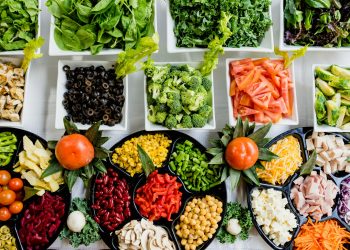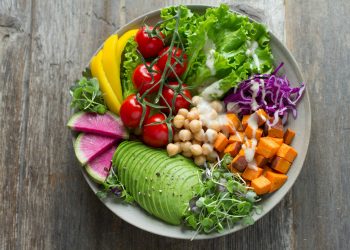Eating healthy can be tricky with all the myths floating around. Let’s bust some common myths with solid science and set the facts straight.
Myth 1: You Need to Drink Eight Glasses of Water Every Day
Truth: How much water you need depends on many factors like your health, activity levels, and where you live. The Institute of Medicine suggests about 3.7 liters (125 ounces) for men and 2.7 liters (91 ounces) for women from all beverages and foods each day. So, drink when you’re thirsty and enough to quench your thirst.
Myth 2: Eating Eggs Raises Your Cholesterol Levels
Truth: Recent studies show that eggs don’t significantly affect the cholesterol levels in most people. In fact, eggs are a great source of nutrients. A large egg contains about 212 mg of cholesterol, but it’s also packed with protein and useful vitamins. The American Heart Association says that one egg (or two egg whites) per day can be part of a healthy diet.
Myth 3: All Fats are Bad
Truth: Fats are essential for body energy, supporting cell growth, and protecting your organs. Not all fats are the same. Trans fats—found in many fast foods, bakery products, and packaged snacks—are bad for your health. However, monounsaturated and polyunsaturated fats (like those in avocados, fish, and nuts) are good for you.
Myth 4: Carbs Make You Put on Weight
Truth: Not all carbs are created equal. While refined carbs (like white bread and cookies) can spike your blood sugar levels and lead to weight gain, complex carbs (like oats, brown rice, and vegetables) are necessary. They provide energy, nutrients, and fiber which helps in weight management.
Myth 5: Organic Food is Nutritionally Better
Truth: Organic food is not necessarily more nutritious. The main benefit of organic food is that it’s grown without synthetic pesticides or fertilizers. However, there’s little scientific evidence that organically produced food is richer in nutrients. Choosing organic is a personal choice based on environmental and ethical reasons rather than nutritional superiority.
Myth 6: Microwave Cooking Destroys Nutrients in Food
Truth: Cooking in a microwave is actually one of the best methods to preserve nutrients in food, as it cooks quickly and uses less water. So, using your Samsung Microwave doesn’t mean you’re eating nutrient-poor food. In fact, it can preserve more vitamins and minerals compared to other cooking methods like boiling.
Myth 7: High-Protein Diets Damage Your Kidneys
Truth: In healthy individuals, a high-protein diet isn’t harmful to your kidneys. This myth started because, in people with preexisting kidney disease, protein can worsen their condition. However, for people with healthy kidneys, increasing protein intake in the diet does not harm kidney function.
Conclusion
It’s easy to get confused with all the misinformation out there. By busting these myths, we hope you feel more informed about your dietary choices. Remember, what works best for your body is highly personal. For more information on diet and health, consider visiting WebMD, a resourceful site with plenty of nutritional information. Eat well and wisely!








